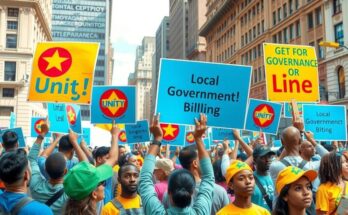King Willem-Alexander’s upcoming state visit to Kenya is under scrutiny from Dutch lawmakers due to humanitarian concerns and questions regarding its purpose. MPs are demanding assurances about safety and practical outcomes, especially in terms of human rights improvements and trade relations. A petition from Kenyan citizens further complicates the visit, raising significant ethical considerations for the Dutch government.
The upcoming state visit of King Willem-Alexander of the Netherlands to Kenya is facing intense scrutiny from Dutch lawmakers. They have expressed significant concerns regarding the appropriateness of the trip due to Kenya’s pressing humanitarian challenges. Concerns were further amplified by a report from Amnesty International and various non-governmental organizations that detail deteriorating conditions within the country.
Members of the Netherlands House of Representatives are particularly questioning the underlying purpose of the visit. Marieke Wijen-Nass, an MP from the Farmer Citizen Movement, has probed the Dutch government for guarantees concerning the King’s safety amidst reported civil unrest. She has articulated doubts about the visit’s potential outcomes, asserting, “Trade relations are important, but the Dutch government must be able to demonstrate that the state visit yields results, both economically and diplomatically.”
In a similar vein, Laurens Dassen of the Volt party has raised alarms regarding the potential perception of the King being used by the Kenyan government for its own agenda. She poignantly questioned, “Is there any prospect of improvements in the human rights situation? Is there a concrete plan to give Dutch entrepreneurs a stronger position in Kenya? If not, the timing of this visit is incomprehensible.”
Significantly, this state visit comes on the heels of a petition, signed by 22,000 Kenyan citizens in January, which urged the cancellation of the visit due to alleged human rights violations attributed to President William Ruto’s administration. In response, Kenya’s Ministry of Foreign Affairs has rebuffed these petitions, claiming they aim to undermine the government’s credibility.
Foreign Affairs Cabinet Secretary Musalia Mudavadi has accused social media influencers of disseminating false information that delegitimizes government initiatives. He stated that what began as genuine protests have transformed into organized cyber-attacks against the Kenyan government. The Dutch government now faces the intricate challenge of addressing these critical concerns while striving to fulfill the visit’s intended diplomatic and economic objectives.
In conclusion, King Willem-Alexander’s state visit to Kenya has generated considerable debate among Dutch lawmakers, primarily focusing on the visit’s timing and potential outcomes in light of Kenya’s current humanitarian situation. Concerns about safety and the effectiveness of the visit in enhancing trade relations and improving human rights have been prominently raised. As the Dutch government prepares for this visit, it must address these multifaceted challenges to ensure that the diplomatic objectives are met without compromising ethical considerations.
Original Source: www.mwakilishi.com




